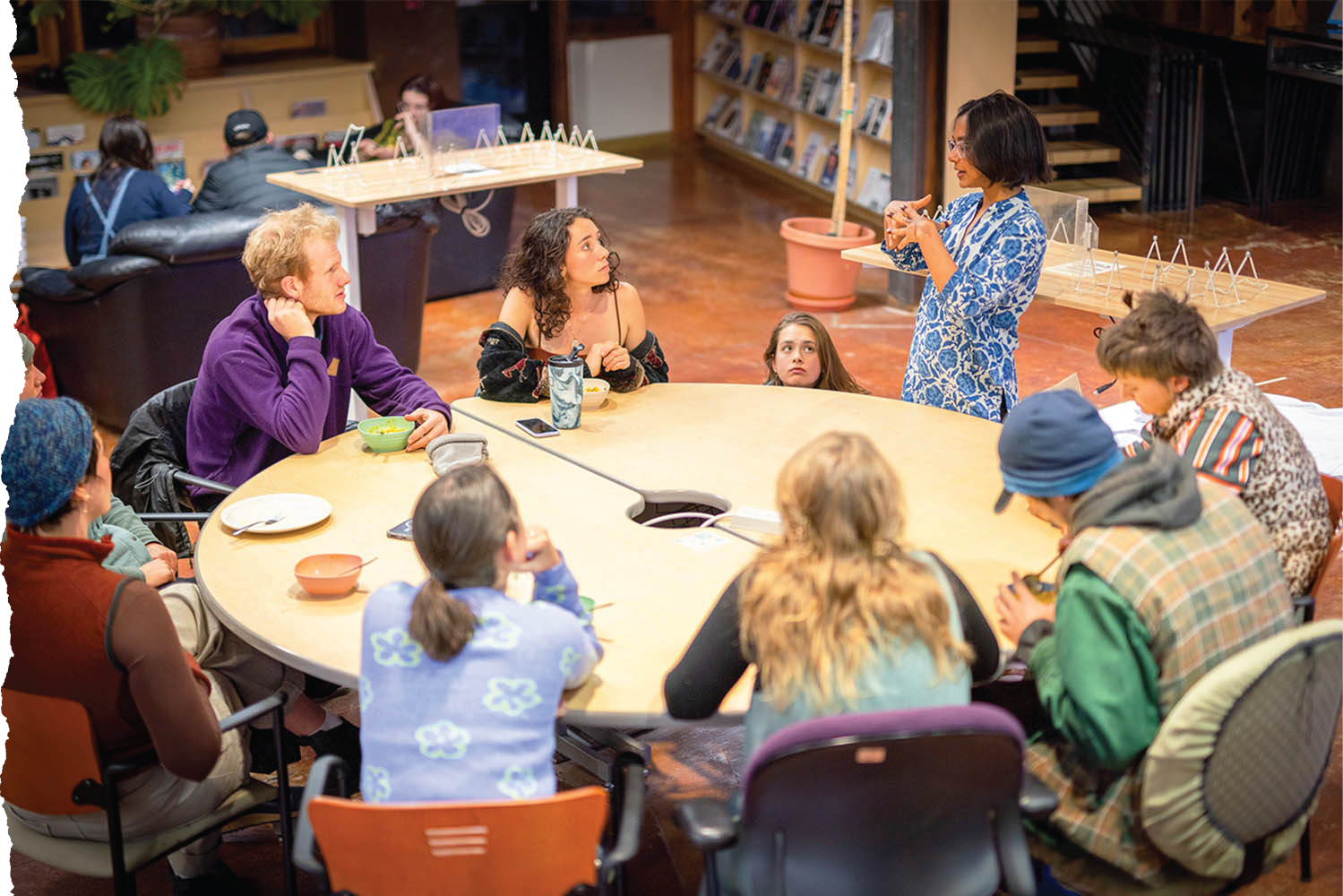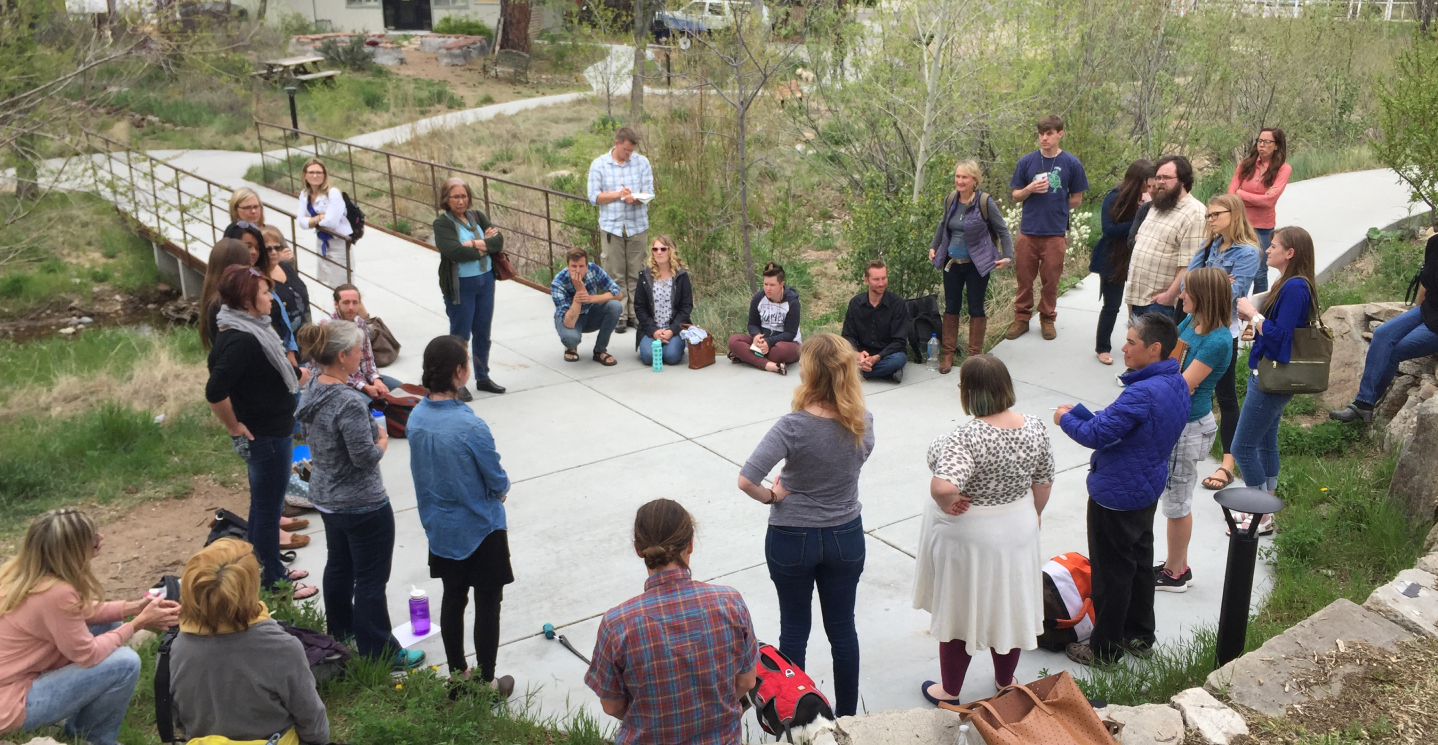
Sustainable Food Systems Certificate
Why this program?
Food insecurity and inequity has risen dramatically due to human-induced climate change and increased pressure on natural resources and organisms. It’s imperative that we ensure a healthy food system, in every way it nourishes us: growing, harvesting, processing, distributing, marketing, consuming, and waste. You want to not only study food systems, but learn how to lead the way in sustaining all living beings now and in the future.
What can you do with this certificate?
Students who complete this program have a competitive advantage in careers associated with any and all aspects of the food system. Here are just some of their career choices:
- Food System Development Coordinator
- Food and Climate Advocate
- Farm-to Institution Coordinator
- Farm Manager
- Nutrition Educator
- Organic Advocacy Organization Administrator
- Policymaker
- Extension/Education & Outreach Coordinator
- Registered Dietitian (Master’s degree needed)
- Organic Certifier
- Permaculture Designer
- School/Community Garden Manager
- Food or Water Policy Researcher
- Market Gardener
- Teacher
What will this program look like?
Food system perspectives are emerging to ensure our food security and well-being in the face of inequities, the profound impact of human-induced climate change, and increased pressure on natural resources and organisms. The Sustainable Food Systems Certificate is grounded in the Food & Agriculture Organization of the United Nations 10 Elements of Agroecology.
This 20-credit certificate will be available to all Prescott College undergraduate students from any major and provides an incentive for students across the curriculum to consider accelerating into our MA in Transformative Food Systems.
Key program information
Fall 2026 Application Deadlines:
On-Campus
Priority Deadline: June 1, 2026
Regular Deadline: August 1, 2026
Admissions & Apply
Synergies and Efficiencies: Learners can demonstrate knowledge of fundamental concepts and specific topics in agroecology, the science of food systems.
Culture, Food Traditions and Biodiversity: Learners can articulate the contribution of agroecology to diversified, culturally appropriate diets.
Human and Social Values: Learners can illustrate the ways in which equity and social wellbeing are essential for just, sustainable food systems.
Co-Creation and Sharing of Knowledge: Learners can apply a range of approaches to ethically engage with communities for food system assessment and action.
- The Sustainable Food Systems Certificate Program is accredited by Higher Learning Commission of the North Central Association. The Higher Learning Commission has approved Prescott College to offer all of its degree titles via distance education.
Careers & Opportunities

Career Pathways
The Sustainable Food Systems Certificate leads to so many possibilities. Here are just a few:
- Food System Development Coordinator
- Agricultural Extension Agent
- Food Service Director
- Food Hub Manager
- Local Food Procurement Specialist
- Food Recovery Coordinator
- Farm-to-Table Program Coordinator
- Farm-to-School Program Coordinator
- Farmers’ Market Manager
- Organic Materials Review Institute
- Project Director, Non-Profit Organization
- Agricultural Business Management / Entrepreneurship
- Agricultural Researcher
- Agricultural Services and Support
- Administrator
- Nonprofit Food and Nutrition Program Manager
- Food Policy Coordinator
- Climate Initiatives Program Officer
- Youth Education Programmer
- Urban Agriculture Coordinator

Career Planning
Our student success team works with you to map out a plan that works, for your goals and your life. There are many ways to get where you’re going, and we’ve seen it all!

Are you interested in being part of our community?
One thing we all have in common is our passion – passion for helping others, passion for the environment, passion for social justice and a passion for a different kind of learning experience.